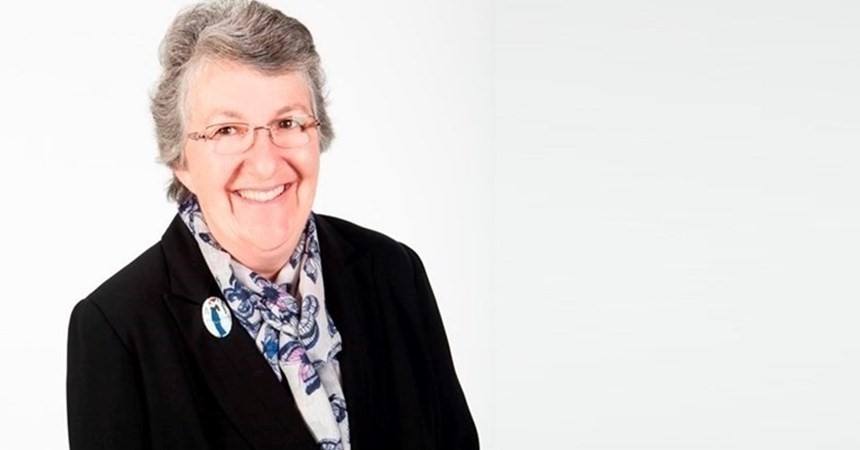On Friday morning, I attended an International Women’s Day Breakfast which was organised by Nova for Women and Children, supporting women with or without children in Lake Macquarie and the Western suburbs of Newcastle, and who are homeless, at risk of homelessness, or are escaping domestic or family violence. There were about 250 present, mostly women and some men, to support the idea that women matter in a society that appears to be taking a long time to respect the role that women play. During this breakfast, we sang I am Woman by Helen Reddy, the words of which are relevant to our situation as women.
Oh yes, I am wise
But it’s wisdom born of pain.
Yes, I’ve paid the price
But look how much I gained.
If I had to, I can do anything.
I am strong,
I am invincible,
I am woman.
International Women's Day is a global day celebrating the social, economic, cultural and political achievements of women - while also marking a call to action for accelerating gender equality.
The theme for this year’s IWD is ‘An equal world is an enabled world’ or to use the social media symbols - #IWD2020 #EachforEqual. With such a theme, there are many images on the website of women and men with their arms formed into an equal sign (=). 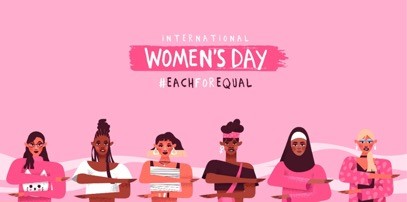
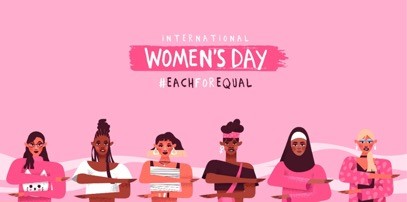
The key call to action addresses the following question - How will you help forge a gender equal world?
- Celebrate women's achievement.
- Raise awareness against bias.
- Take action for equality.
I believe this call to action can be applied to us. On this day, Sunday, I attended the 9.30am Mass at the Cathedral to celebrate IWD and to attend the Magdalene Awards afterwards. There were seven wonderful nominees for this award, which seeks to recognise a Catholic woman who lives out her faith in a way that makes a real difference to the lives of others in her community. No doubt, each of the nominees is making a difference in her community because of her faith. The winner of this year’s Magdalene Award was Margot Simmons from the St Benedict’s Parish, Newcastle.
What was really lovely was the presence of people from the nominees’ families and communities, celebrating with each of these women. Like Mary Magdalene, these women are women of great faith, while being humble, generous, and compassionate, and serving their respective communities. They put their faith into action.
The following quote comes from the International Women’s Day website.
So let's build a gender equal world
Equality is not a women's issue, it's a business issue.
Gender equality is essential for economies and communities to thrive.
A gender equal world can be healthier, wealthier and more harmonious - so what's not great about that?
The race is on for the gender-equal boardroom, a gender-equal government, gender-equal media coverage, gender-equal workplaces, gender-equal sports coverage, more gender equality in health and wealth .... so let's make it happen. Let's be #EachforEqual.
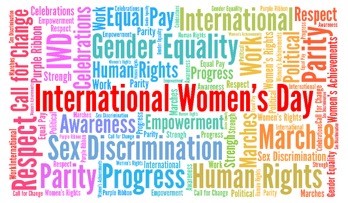
In our Catholic Church, there has been a great deal of conversation about the contribution of women to the life of the church for many years. This year marks the 20th anniversary of the Australian Bishops’ response to research on the participation of women in the Catholic Church in Australia. The research results were published as Woman and Man: One in Christ Jesus and the Bishops’ Social Justice Sunday Statement of 2000 was titled Woman and Man: the Bishops Respond. In 2019 the Office of Social Justice published a collection of essays marking these anniversaries. Titled Still Listening to the Spirit: Woman and Man Twenty Years Later, the book was a collaboration with the Office for the Participation of Women.
In their foreword to the collection, Archbishop Christopher Prowse and Bishop Vincent Long Van Nguyen acknowledge:
… twenty years down the track, women are still listening to the Spirit and seeking to engage the whole Church in a conversation about a more fulsome development of the participation of women in the Church, for the sake of us all, and for the sake of the Reign of God.
There is unfinished business for the action commitments made by the bishops in 2000. There is also an opportunity to contribute to the communal discernment process of the Plenary Council 2020. This collection of essays engages creatively with both of these elements of the present moment.
In the publication of 1999 – Woman and Man: one in Christ Jesus the following words were written:
The dominant issue arising from the research was gender equality, recognising the equal dignity of women and men created in the image and likeness of God. This understanding of equality did not imply the sameness of men and women, but rather their complementarity and mutuality. The Church was seen to be lagging behind the wider Australian society in recognising the changing role of women as one of the “signs of the times” and affirming the equality of women. The very limited participation of women in decision-making at present and the need to increase women’s involvement in decision-making at all levels were constant and major themes.
It is hard to imagine that this is still our reality which was reflected within the responses to the Listening and Dialogue process of the Plenary Council, where the role of women in the Church loomed large. In the final report Listen to what the Spirit is saying, these responses were picked up in many of the chapters. The following words can be found in Chapter 7 – Leadership and Church Governance:
The theme of greater involvement of women in the Church had very strong support from a large group of participants. Chapter 6 on sacraments discussed the ordination of women, which was another popular theme……
The need for greater involvement of women stemmed from various concerns. Firstly,…..many were of the strong opinion that women are purposefully excluded from many areas of Church life, particularly areas of governance and decision-making. This was despite the fact that the presence of women in the Church is stronger than that of men and that women do a large share of the work in parishes and communities. There was a need, therefore, for this to change and for women to be treated as equals.
There was also a strong sense that the Church was still old fashioned in its view of women. Many participants spoke of a need for “genuine acceptance” and “greater affirmation of the contribution of women” in the Church, while recognising that the position and role of women in society had evolved a great deal in the past few centuries.
While a large number advocated for female priests, others felt there was more that could be done even without that option.
Numerous participants made suggestions for women to participate more fully in church leadership positions that included senior administration and decision-making. Recognising their theological qualifications and getting them involved in dicasteries and other departments of the Curia was also supported. Several also noted that such involvement could also stop shameful events like the clergy sexual abuse scandal from ever happening again.
One strong recommendation made that would give women a greater role in the Church was by allowing them to be ordained as deacons.
I am conscious that by limiting the voice of women, we are not fully who we are meant to be. I refer to the following as an absence of the shared experience and story of women:
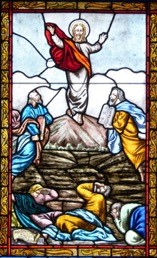 I think we need to be mindful that the sources of theological thinking are commonly named as four: Scripture, in and through Tradition, which we think about reasonably, in the light of personal and shared human experience. Therefore listening to human experience is not anecdotal to the theological task but essential to its quest for truth, and recognising that all human knowledge is contextual, limited and therefore essential to the fuller vision our understanding cannot renounce upon seeking.
I think we need to be mindful that the sources of theological thinking are commonly named as four: Scripture, in and through Tradition, which we think about reasonably, in the light of personal and shared human experience. Therefore listening to human experience is not anecdotal to the theological task but essential to its quest for truth, and recognising that all human knowledge is contextual, limited and therefore essential to the fuller vision our understanding cannot renounce upon seeking.
(Maeve Louise Heaney VDMF – Women’s Leadership in the Church: A Question of Imagination from Still Listening to the Spirit: Woman and Man Twenty Years Later)
“Transform us as you transfigured” was the lesson from our readings on Sunday. We are continually being asked to be transformed and we are being invited to a transformation of our church. Abram was asked to leave his home at the age of 75 and to trust in God who would show him the way. God’s call was a blessing for him and his descendants. Do we dare to imagine what God is calling us to, and, do we have the courage to say yes and follow.
Jesus went up the mountain and all was revealed, God’s magnificent mystery. During this week let’s go up our sacred mountain and be transformed. Or as the last words of the hymn say:
Lead us down those pathways,
where our love is not confined.
(Transform Us – Sylvia Dunstan, 1993)
